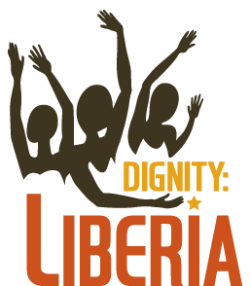WHAT IS FISTULA?OBSTETRIC FISTULA is an abnormal, physical opening -- a tear or hole -- between the excretory systems and a woman's birth canal, often caused by extended hours or even days of difficult childbirth. Medical intervention is required to avoid fistula, often in the form of a caesarean section. In many cases where fistula has occurred, the baby died before or during delivery. During prolonged labor, blood supply is diverted from the pelvic floor from other vital organs and even the unborn child, contributing to the possibility of a fistula forming as vaginal tissue dies and is eventually shed. When this happens, a woman's body will leak urine and feces almost constantly, as waste flows through the hole and out of the vagina. Fistulas may also be caused by rape or traumatic sexual abuse, both of which continue to be significant social problems in Liberia. Referred to as "Pee-pee, Poo-poo Disease" by rural, native Liberians, fistula is a devastating and life-altering condition for many women. Beyond the likely loss of a child, fistula contributes to feelings of loss of personal self worth and powerlessness that can result in abandonment of their spouse, family, and community. It is often the odor and constant reminder of feelings of loss of life and hope of an innocent baby, and the continuing hurt of being robbed of marital relational dignity and social acceptance.
BECOME INFORMED
Some people wonder how and why fistula has become such a huge issue in Liberia. The primary answer: nearly fourteen years of civil war. Learn more about the recent experience of Liberians, including how the brave and tenacious women of this nation stepped up -- despite their own incredible suffering -- to call for an end to the fighting, leading to a peace that lasts to this day. Read about Liberia's recovery > |
FACTS ABOUT FISTULA IN LIBERIA
Statistics: The Millennium Development Goals Report 2011.
WORK WITH USThe goal of Dignity: Liberia is to combat obstetric fistula at its source. One of the best ways to do that is to provide adequate maternal care to expecting Liberian women in rural areas, which is why we are building House of Hope and Dignity.
Learn more about Dignity:Liberia, our personal connection to this nation, and our strategic initiatives. |
|
|
